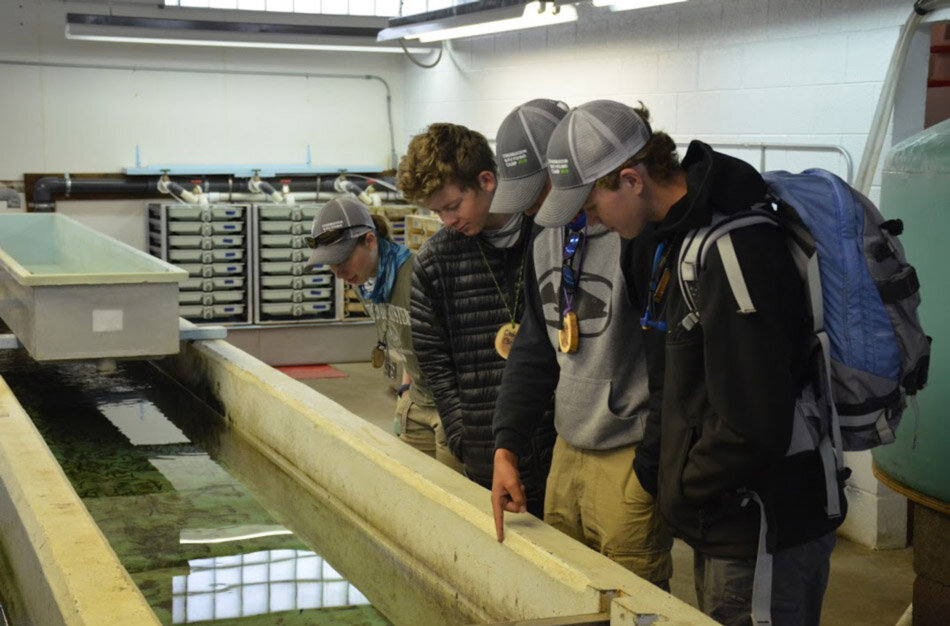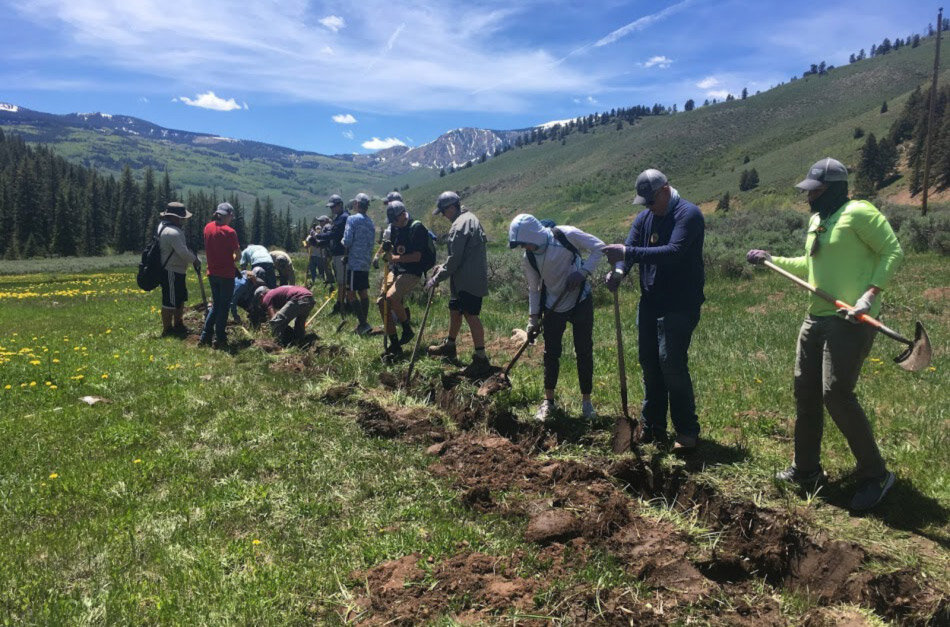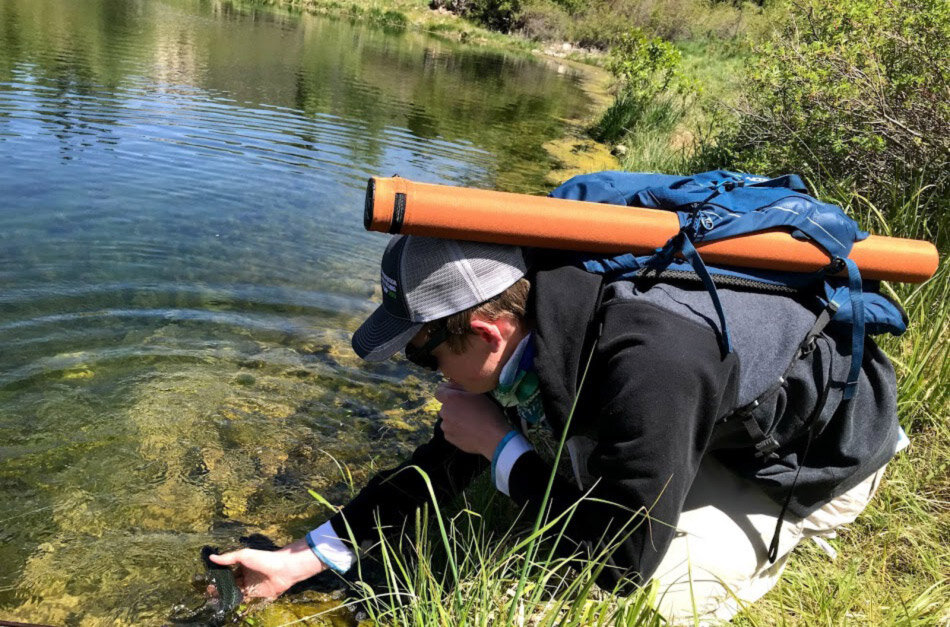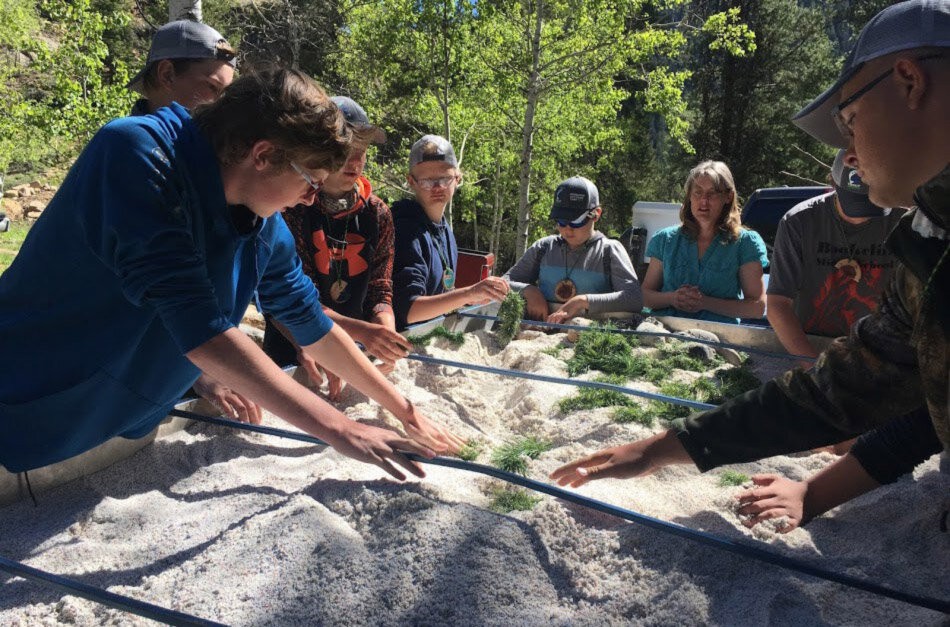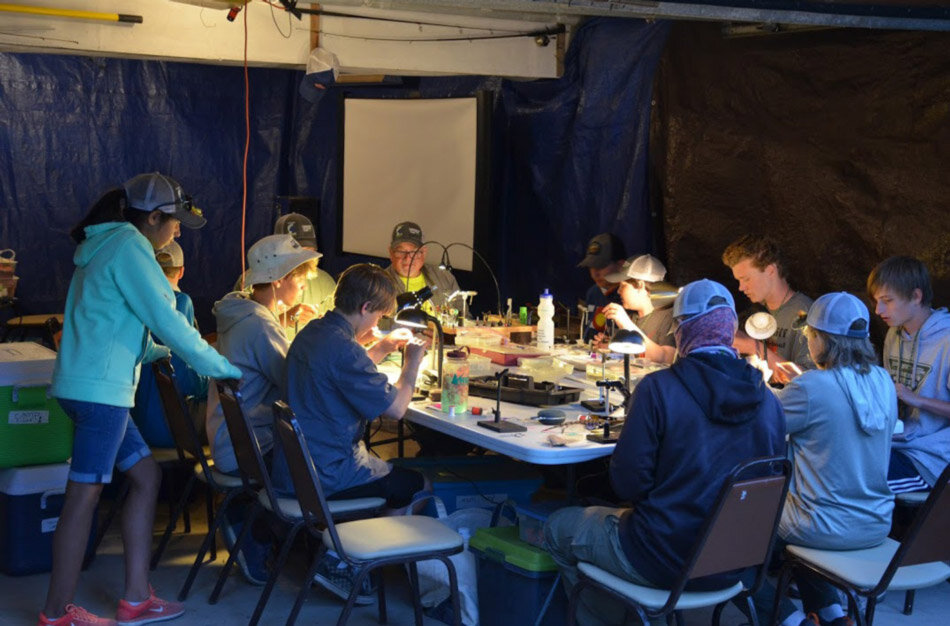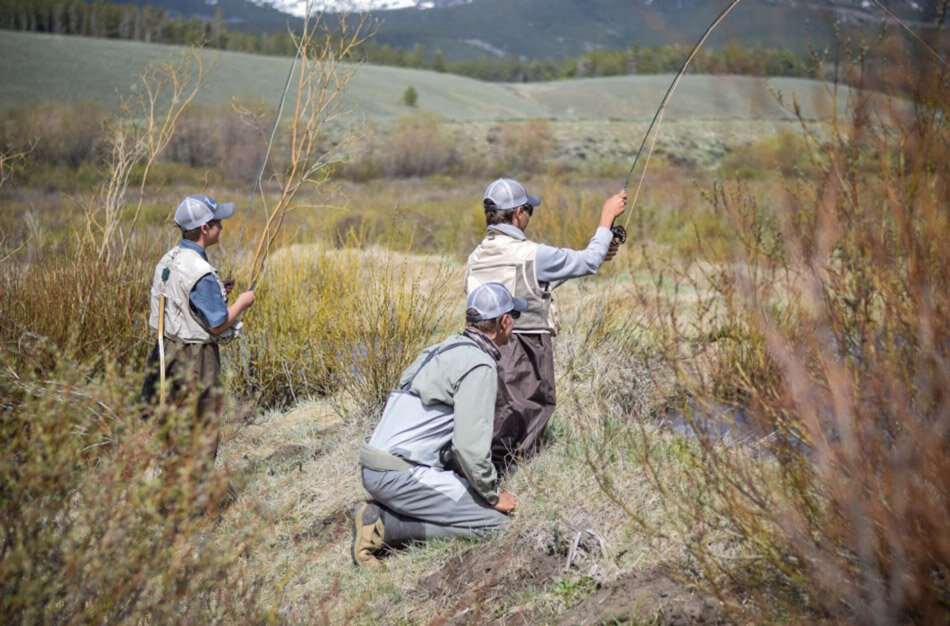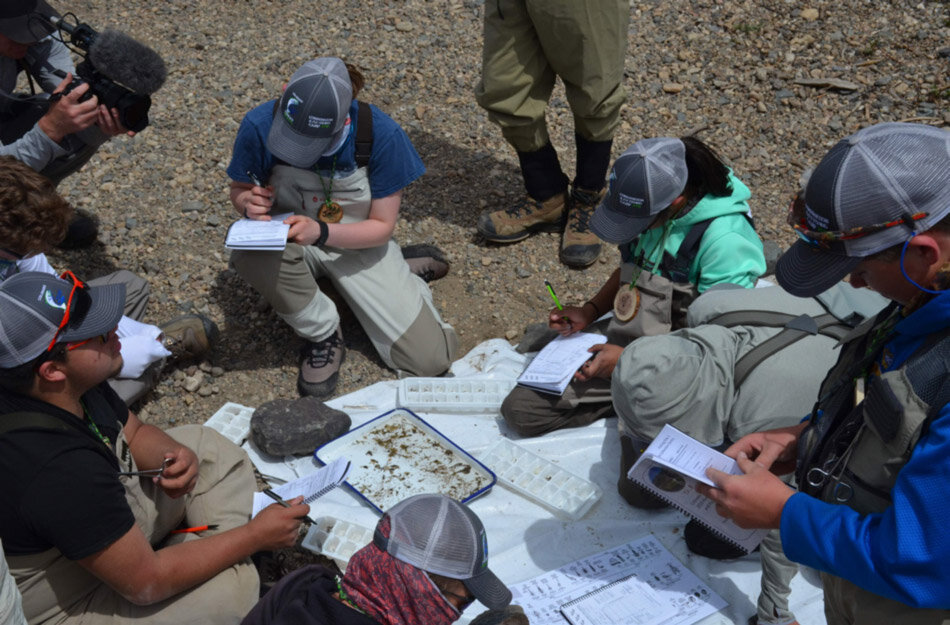Colorado Trout Unlimited’s vision for a Youth Camp that inspires the next generation of river stewards has endured for 14 years. The St. Vrain Chapter is an active supporter providing an annual scholarship to a youth in need. Our chapter members are also involved in camp as volunteers. Dick Shinton, Barbara Luneau, Mark Rayman, and Mark Sheedlo join a team of 10 volunteers that plan and lead camp every year.
This week-long camp program provides hands-on conservation education and fly fishing instruction. It introduces novices, and build skills for more experienced anglers and conservation advocates. Youth 14-18 years are eligible to apply to camp. Twenty two campers are selected based on their application including an essay on why they wish to attend camp.
Visit the CTU Youth Camp website here to learn more and complete an application.
If you are interested in camp and in need of a scholarship, contact chapter leadership by clicking the link below.
The article excerpted below provides a comprehensive overview of the week’s activities.
CTU Youthcamp 2019
By Barbara Luneau
Originally Published in the High Country Angler Fall 2019 Issue
Colorado Trout Unlimited’s River Conservation and Fly Fishing Youth Camp class of 2019 attended the camp program June 9-15 at Silent Spring Resort in Almont, CO. With this class of alumni, we have achieved 14 years of the camp curricula. Since its initiation in 2006, nearly 250 teens have attended the camp. The Class of 2019 includes 19 campers representing 14 Colorado TU chapters, and one Washington chapter. The campers completed a week-long program that balances conservation education with building and improving fly fishing skills. Each day’s agenda includes a conservation education activity and a fly fishing excursion. The activities are designed to expose the high school-age campers to a broad range of conservation-related topics, and potential career paths. Invited guest presenters are always a key component of the conservation agenda. This year’s agenda of guest experts included a field visit to a mining restoration site on the Slate River with the Crested Butte Land Trust, hands-on hydrology demonstrations with the Natural Resources Conservation Service (NRCS), riparian trailer lead by NRCS and Shavano Conservation District staff, water use discussion by TU program director Cary Denison, Water Law introduction by TU Colorado Water Project Legal Counsel Mely Whiting, tour of Roaring Judy Fish Hatchery, and a Colorado Native Cutthroat Trout restoration presentation and discussion by Colorado Parks and Wildlife Aquatic Biologist Daniel Brauch.
Each year, the highlight of the camp’s conservation agenda is completing a conservation project. This year we cleaned out an eroded irrigation ditch at a Forest Service livestock holding area. The campers removed built up sediment and brush from an irrigation ditch. From this first-hand experience, they clearly were able to see the confluence of agriculture and habitat restoration, and recognize the relationship between effective irrigation practices and conserving trout habitat. This class completed one of the most physically demanding projects in the history of the camp, cheerfully and with great gusto. It was so gratifying to see the campers running along the ditch, following the water as it was released into the newly-cleaned ditch.
The campers come to camp to fish, and they represent all skill levels when they arrive. We kick off the skills instruction with casting, and novice anglers learn the basics while more experienced anglers work on advanced casting skills. Campers learn fly tying skills by formal instruction and informal free tying time. They learn entomology, and survey aquatic macroinvertebrates and water chemistry at every fishing location. Through these exercises they observe firsthand the connection between water quality, habitat location, and fly fishing. They also learn knots, leaders and rigging. Skills are reinforced with games and competitions. Fishing time is always a favorite with the campers. The high run-off this year presented a challenge, but we were able to find accessible water above Taylor Reservoir and at Roaring Judy Ponds. The camp staff members pair up with a couple of campers and essentially guide them. We teach the campers how to read the water, select flies, and coach them through how to fish a location, hook up, and land trout.
Connecting with others and making lifelong friendships is always a highlight of camp. Since our campers come from all over the state and beyond, they don’t usually know each other when they arrive. For many, it is a special opportunity to meet peers interested in the same things that they are. They often tell us that they don’t have other friends at home interested in fly fishing and the outdoors like they are. As a result, many lifelong friendships are formed at camp. As a volunteer leader, I find this to be one of the most moving parts of the camp experience. Wherever these young adults go in their lives, they will always have a friend to stand beside them in a river.
The community of camp doesn’t happen without the tremendous effort of our hosts and volunteers. We’re a family that continues to grow with our camp experience. Keri and Ron, the owners of Silent Spring Resort (and parents of a camp alumni), have made a safe and welcoming site for our campers for the past 2 years. Our staff includes 11 volunteers from chapters all over the state that give a full week of their time to support the camp program. Half of our staff includes camp alumni as both adult and junior counselors. The commitment to come back year after year says a lot about the passion these young people have for camp. It is a real privilege for all of us to become mentors for the Class of 2019, and continue the legacy of the camp’s founders - Sharon Lance and Larry Quilling.


